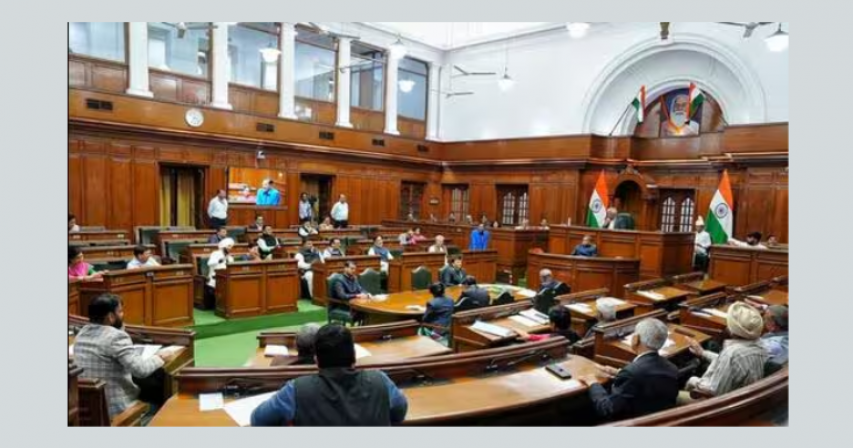Delhi assembly session cancelled for today, next sitting on March 27

The scheduled session of the Delhi Assembly for today stands canceled, as announced in a bulletin issued by the assembly. The Speaker has directed the cancellation of the sitting, citing recent developments following the arrest of Chief Minister Arvind Kejriwal. The next session is slated to convene on March 27 at 11 am.
This decision comes amidst the tumultuous aftermath of Kejriwal's arrest by the Enforcement Directorate (ED). The Speaker's directive underscores the significant impact of recent events on the functioning of the legislative body.
Earlier, on March 16, the assembly had addressed critical issues such as the shortage of medicines and inadequate medical testing facilities in hospitals and Mohalla Clinics. A resolution was moved, compelling Chief Secretary Naresh Kumar to address these concerns within a week and present a report during the next assembly session, initially scheduled for March 22.
Meanwhile, AAP leaders and supporters have congregated at the party office on DDU Marg near ITO, despite police barricades, to protest against the arrest of the Chief Minister.
Kejriwal's arrest unfolded shortly after the Delhi High Court rejected his plea for interim protection. The ED had summoned Kejriwal nine times for questioning before his arrest. The timing of his detention, just weeks ahead of the general elections, has raised eyebrows and sparked widespread speculation.
In response to his arrest, Kejriwal swiftly moved the Supreme Court, seeking an urgent hearing to challenge the legality of his detention.
The cancellation of today's assembly session underscores the disruptive impact of Kejriwal's arrest on the state's legislative affairs. The decision reflects the gravity of the situation and highlights the need for political stability and legal clarity.
As AAP supporters continue their protests and legal battles unfold, the political landscape in Delhi remains tense and uncertain. The fallout from Kejriwal's arrest reverberates across party lines, prompting questions about governance, democracy, and the rule of law.
The cancellation of the assembly session serves as a stark reminder of the challenges facing India's democratic institutions. It underscores the delicate balance between political leadership, judicial oversight, and public accountability.
In the coming days, all eyes will be on the Supreme Court as it deliberates on Kejriwal's plea and grapples with the broader implications of his arrest. The outcome of these legal proceedings will not only shape the fate of the Chief Minister but also set a precedent for the intersection of politics and law enforcement in India.
As the nation awaits further developments, the cancellation of today's assembly session serves as a poignant symbol of the tumultuous times facing Delhi's political landscape.
By: Sahiba Suri





Comments